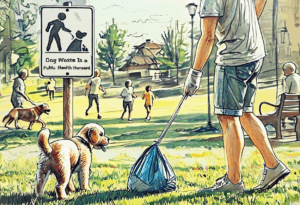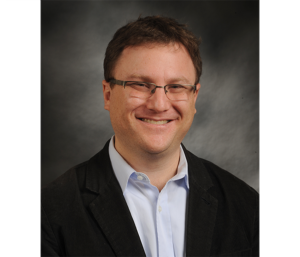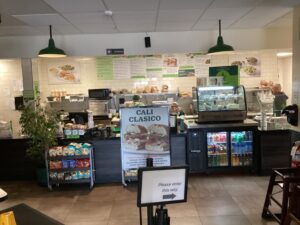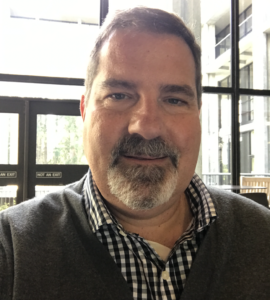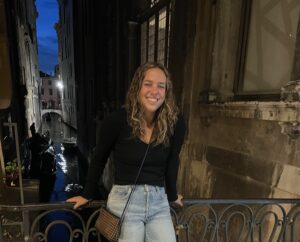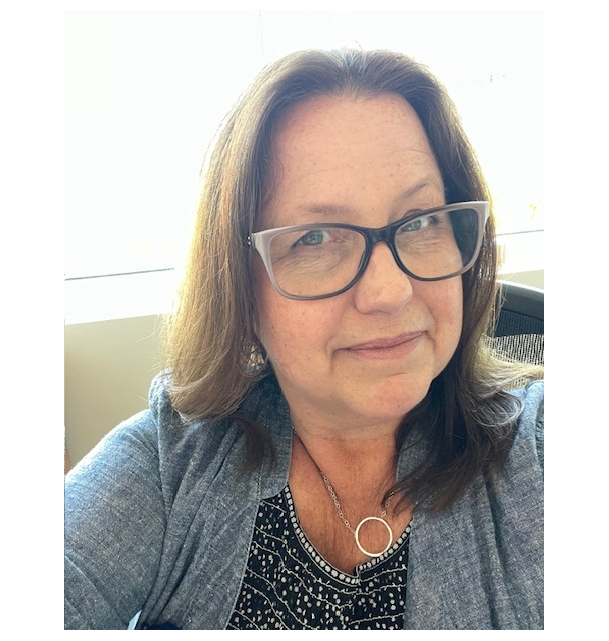
I recently had the opportunity to interview Kerry Parker, the Solid Waste and Environmental Services Program Manager for the City of San Ramon and recently elected Board Member for the California Resource Recovery Association (CRRA) for the Northern District of California.
“I’ve always been environmentally concerned,” Kerry reflects, recalling her college years when environmental degradation seemed an insurmountable challenge. “We felt like we had this huge problem to solve and talked to adults about how we were concerned about ruining our planet and how we were concerned it was too late already.”
Kerry’s path to environmental advocacy was far from linear. “I was concerned about the environment when working with children way back in the day,” Kerry reflects, tracing her environmental awareness back to her early career as a preschool teacher. This foundational experience, combined with a sociology degree from the University of California, Santa Cruz, a four-year stint in the tech industry, and now 17 years developing municipal waste reduction programs uniquely prepared Kerry for her current role.
“Marketing and persuading people to do something differently than what they’re doing now is my work,” she explains, drawing a direct line from her diverse background to her current mission of environmental stewardship. This skill set proved invaluable when faced with a groundswell of youth activism that would shape her career trajectory.
The turning point came during her time working for the City of Alameda. “We received hundreds of requests from kids saying, ‘Hey, you should ban straws,'” Kerry recounts. This simple yet powerful demand from the city’s youngest residents ignited a passion that would define her professional future. She rewrote Alameda’s polystyrene foam ban into an ordinance that made straws only available on request, and essentially outlawed single-use plastic foodware altogether. Alameda’s City Council unanimously voted to approve that law in 2017.
Today, Kerry’s position allows her to translate that youthful enthusiasm into tangible policy. “Now I’m still concerned, but I feel like I can do something right now. I’m at the policy design level where I can make a difference,” she states with conviction. And Kerry decided to tackle one of the most pressing issues facing communities today: unnecessary single-use waste.
The fight against single-use foodware in San Ramon is more than just a policy initiative; it’s a shift in how communities approach waste reduction. Kerry’s approach focuses on long-term behavioral change of the consumer choosing drinking coffee or eating lunch with durable dishware rather than exacting punitive measures on restaurants.
“I don’t want to penalize people or restaurants because they’re using a plastic fork,” she emphasizes. “I would rather talk to them about how choosing reusable dishware, which we all prefer to flimsy plastics and paper products, can completely eliminate these unnecessary disposables.” This philosophy underlines her entire approach to environmental management in San Ramon, favoring education and community engagement over strict enforcement.
One initiative underway in San Ramon is the installation of commercial-grade dishwashers in community centers. While this might seem like a small step, its impact is profound. “We just installed a new dishwasher at the Senior Center,” Kerry explains. This single installation is projected to save over 51,000 pieces of disposable food ware per year, and this is not including the single-use foodware that group rentals purchase for their events.
The implications of this initiative extend far beyond the Senior Center. By providing reusable plates, utensils, and cups for daily lunches, facility rentals and community events, the city is not only reducing waste but also setting a visible example for residents. “All of those people that regularly use the Senior Center, their families, and the renters of the facility they’re going to notice their own waste reduction,” Kerry notes.
This approach exemplifies Kerry’s strategy of making environmental stewardship tangible and relatable to community members. By demonstrating the feasibility and benefits of reusable options in public spaces, the city hopes to inspire similar choices in private homes and businesses.
Kerry’s vision for San Ramon extends beyond individual initiatives to encompass a comprehensive reimagining of how the community interacts with waste. Drawing inspiration from other municipalities, she envisions a future where reusable systems are the norm rather than the exception.
One potential initiative under consideration is a cup and container charge system, similar to that implemented in the town of Truckee. Under this system, customers would be charged a quarter for disposable cups and food containers, incentivizing the use of reusable alternatives. “The idea is to get you to think about it,” Kerry explains. “Each charge is somewhere where you could have saved some other way.”
While such a system faces potential challenges in implementation, particularly in terms of business and community buy-in, Kerry sees it as a crucial step towards a more sustainable future. She envisions a San Ramon where reusable systems are integrated into everyday life, from coffee shops to restaurants to community events.
This vision aligns with broader state initiatives, such as SB 1383, which aims to reduce organic waste disposal and rescue edible food. San Ramon is not only compliant with these requirements but is actively pushing beyond them. The city has implemented organic waste collection for all residents and businesses and is working on food rescue programs to divert edible food from landfills to those in need.
Rather than viewing them as burdensome regulations, Kerry sees them as opportunities to engage the community in meaningful change. “We are not only compliant with San Ramon’s requirements for SB 1383, but also State and regional requirements,” she notes with pride.
Community engagement lies at the heart of San Ramon’s environmental initiatives. Kerry recognizes that lasting change can only come through widespread participation and understanding. To this end, she employs a variety of strategies to reach and educate community members.
One key approach is direct outreach. “If someone wants me to speak to their Service group or at their school, I go,” she explains. These speaking engagements provide opportunities to connect with community members face-to-face, helping them understand the impact of their daily choices on the environment.
Kerry’s messaging focuses on making the abstract concept of waste tangible. She encourages people to consider “the mountain of trash that they alone have produced” and to think critically about small adjustments they can make about the packaging and disposable items that surround them in daily life. By framing the issue in personal terms, she hopes to inspire individual action.
Collaboration with local businesses and organizations is another crucial aspect of community engagement. The manager recounts a recent presentation to the Chamber of Commerce, where a local business shared how switching from disposables to reusables had saved them money, and had built customer loyalty. Such real-world examples can be powerful motivators for change.
However, the path to environmental progress is not without its challenges. One of the biggest hurdles, Kerry states, is changing people’s mindsets. “The biggest challenges are people’s own minds,” she reflects. Overcoming ingrained habits and preferences for convenience can be difficult, requiring patience and persistent education.
As San Ramon continues its journey towards environmental sustainability, Kerry offers words of advice for young environmental enthusiasts aspiring to make their own changes locally. Her message is clear: start with the tangible and immediate.
“I think this trash-free thing is the way to do it,” she asserts. By focusing on reducing disposable items, individuals can make a significant impact on a pressing environmental issue. Kerry emphasizes the importance of personal responsibility, encouraging people to consider their consumption habits and make conscious choices to reduce waste.
She also stresses the importance of thinking long-term. “Do you want to have kids? Do you want to have grandkids? What do you think their world is going to look like?” By framing environmental action in terms of future generations, she hopes to inspire a sense of urgency and commitment.
Kerry’s journey from concerned citizen to environmental leader offers a powerful example of how individuals can effect change at the community level. Her approach, combining policy initiatives with grassroots engagement and education, provides a model for other communities seeking to address environmental challenges.
In the face of global environmental challenges, San Ramon’s story offers hope and inspiration. It demonstrates that meaningful change can start at the local level, driven by passionate individuals and supported by engaged communities. As Kerry puts it, “It’s about changing the trajectory we’re on.” In San Ramon, that change is well underway.
The views and opinions expressed are those of the authors and do not necessarily reflect nor represent the Earth Chronicles and its editorial board.
